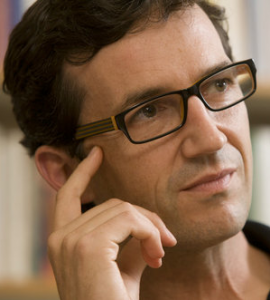 When did you join the Division? What have been your impressions of it so far?
When did you join the Division? What have been your impressions of it so far?
What does a typical work day for you look like?
My primary appointment is in the business school, my secondary appointment is in public policy, and my tertiary appointment is in the school of medicine. One of the things that attracted me to Duke, in fact, was a chance for what feels, in many respects, like a second career. I no longer see patients but, instead, have swapped out my clinical time for teaching time. I teach courses for daytime MBA students, executive MBA students, and undergraduates. In addition I mentor PhD students in master students. This teach can mentoring – and I still can't believe I'm about to write this – pays all of my salary. I no longer write grants for a living. Instead, I write grants in order to have money to collect and analyze data. Very liberating!In addition to a physician, you're also a behavioral scientist. Can you tell me more about that work?
When I am not teaching or mentoring, I'm still doing writing and research, which I have done my entire career. My research focuses on how people make decisions related to health and healthcare. I like to see what makes people tick. I like to figure out how they think, or how they behave even when thinking isn't involved! I try to split my writing time pretty evenly between academic articles and essays or books directed at lay audiences. I think that the same thing that makes me love teaching also makes me like to write for general audiences – I like to take complicated things and make them easy for lots of people to understand. And in the process, I like to shake up their way of thinking.Can you tell me about your current research?
I have always had a hard time focusing my research, because like many of us in general medicine, I like to do everything. Nevertheless, a good chunk of my research time these days is spent studying how physician-patient encounters shape the healthcare decisions that patients make. More recently, I'm even starting to look at how doctors and patients discuss the cost of healthcare, in the context of clinical encounters. Really fascinating stuff.